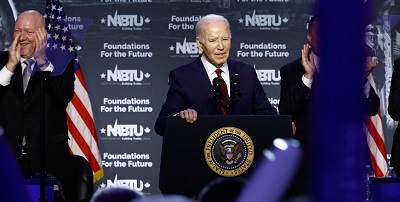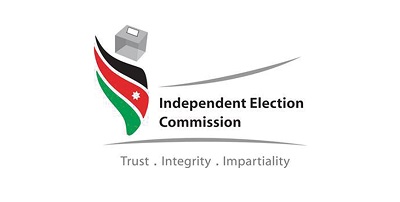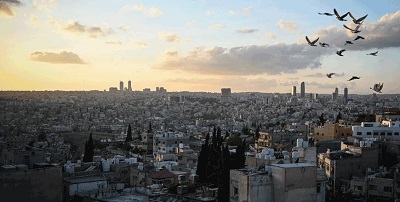Palestinians’ Hopes Hang on Transformation of the World, Themselves - By Hazem Saghieh, Asharq Al-Awsat
It would not be an overstatement to say that the “deal of the century” is recognition of Israel as a forerunner in cruelty. For this world, as it seems today, merely imitates and continues to imitate Israel, and has succeeded, to a large extent, at following in its footsteps. In this sense, Tel Aviv’s successes are not dissonant: they are, unfortunately, the face of a tide rising across the world.
So long as America has a decisive impact on drawing the picture of world, its mounting bias in favor of Israel since Eisenhower was in power, is not marginal. With Donald Trump, this bias reaches total compatibility. However, globally, it is not a simple thing for Israel to combine brotherhood with America, friendship with Russia, mutual openness with China and India, and the limitation of the damage to its relationship with Europe, not to mention the progress, some of it major, being made in Africa, Asia, and Latin America.
Nevertheless, the issue is not one of political and diplomatic relationships. It’s deeper than that. To a large extent, the state of our world is what explains the above described diplomatic and political relationships. For when the world puts its stakes behind the Jewish state against justice for Palestine, it recognizes its preference for its example, its fundamental nature of withholding rights. The student, in this sense, is telling his teacher: I have become like you.
Let's, for a moment, survey briefly some of the prominent signs of cruelty in our times: nationalist-centered populism in most parts of the world. Islamophobia cuts across nations, regimes and ideologies (in addition to an expansion of anti-Semitism). Collective expulsions of populations and “Guantanamist” exceptions are increasing. Politics has become condensed to war against terrorism that takes the good for the crimes of the bad.
Even states themselves are faced with a tough test: during the Cold War, the unity of weak states was protected by global polarization, which guaranteed their continuity, while they desperately need now to prove that they are worthy of survival. A country like Syria (which once was home to 25 million people) became, in the midst of the “survival of the fittest” uproar, an Iranian- Turkish- Russian- Israeli battleground, turning it into a wasteland. Bashar Al-Assad was the tool for implementing this transformation.
Within the democratic world, there is a growing openness to far-right parties, in Italy and Austria for example. Even in Germany, we find, in the small state of Thuringia, a dangerous precedent: the Christian Democrats stood alongside the 'Alternative for Germany' against Angela Merkel’s wishes. As for the countries of Middle and Eastern Europe, which witnessed revolutions that defeated the Soviet empire, their situation, with regard to nationalism, populism, and migrants is much worse.
It is true that globalized humanitarian sensitivity is growing in the big cities of advanced countries, especially among the youths. However, it is also true that this sensitivity expresses itself mostly through repulsion of horrific scenes and changing the TV channel so as not to see it. It is the behavior of the homo ludicus more than of those who to change the world. Is it not remarkable, for example, that we have not witnessed a popular or militant movement against nuclear armament similar to the one which took place during the Cold War, or similar to half of it, or even a quarter of it?
In contrast, we have the terrifying implications of what Myanmar witnessed, as its significance surpasses the borders of that Asian country: Aung San Suu, who had been the shining star of democracy, human rights and resistance to dictatorship and militarism, herself became the defender of the genocidal campaign launched by the military against the Muslim Rohingya, 750 thousand of whom fled the country. The rationale behind this was that democracy itself became nationalistic: it is a privilege for us and not a right for others.
Is there not something of an Israeli precedent to all of this? Let us just remember a few headlines: the uprooting of 'natives', discrimination against citizens, Netanyahu’s populist leadership… Even a former prime minister like Ehud Olmert, who spent more than half of his political life with Likud, is now warning against Israel’s transformation into an apartheid state.
If this perception of Israeli precedence is correct, resisting Israel becomes a far more important issue than a car-ramming or an explosion in a coffee shop or a bus. Also, the medicines of the past (resistance and armed struggle…) cannot provide the cure, and only provide the justifications and opportunities required by the Syrian and Iranian regimes who only fish in troubled waters.
Let’s be honest with ourselves about the fact that the viable options are difficult and narrow, especially with the poor objective position that the Palestinian issue has in the regional and world balance of power, however way these balances are seen. With that, what is left for us and the Palestinians are two connected bets: for the democratic world to witness a movement that corrects its democracy and its capitalism, in such a way that nationalistic and populist tendencies retreat in favor of humanistic and progressive values like liberalism, social democracy, and humanitarian intervention, and that this transformation finds reception in Israel, which will only happen when the Israelis are convinced, in light of a different global atmosphere, that they have to choose between racism and democracy. As for the Palestinians, right-holders, their hope is to align themselves with this atmosphere: moving away from identity politics and corruption, having peaceful resistance prevail, and decisively supporting the right-holders who resemble them in other countries. As for their unity, it certainly takes precedence over any other consideration.
This talk seems preachy? Maybe, but preaching is what is left.
Latest News
 'Sinwar Above Ground': Hamas official's revelation shocks Israeli Occupation
'Sinwar Above Ground': Hamas official's revelation shocks Israeli Occupation US president signs bill to provide new aid for Ukraine
US president signs bill to provide new aid for Ukraine Prime minister directs government to support IEC ahead of upcoming elections
Prime minister directs government to support IEC ahead of upcoming elections Parliamentary elections for 20th Lower House to be held on September 10 – IEC
Parliamentary elections for 20th Lower House to be held on September 10 – IEC Amman Chamber of Commerce says GDP grows by 4.4% in 2023
Amman Chamber of Commerce says GDP grows by 4.4% in 2023
Most Read Articles
- Palestinian prime minister, Jordanian ambassador discuss humanitarian efforts in Palestine
- US president signs bill to provide new aid for Ukraine
- Senate president, Rwanda’s ambassador discuss bilateral relations
- Prime minister directs government to support IEC ahead of upcoming elections
- 'Sinwar Above Ground': Hamas official's revelation shocks Israeli Occupation
- “Israel” withdraws main infantry brigade from Gaza
- Iran cuts Syria presence after strikes blamed on Israel —monitor
- European Parliament overwhelmingly condemns Iranian strikes against “Israel”
- US Supreme Court seems split on Idaho abortion ban
- Vaccines saved at least 154 million lives in 50 years — WHO